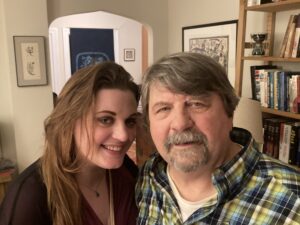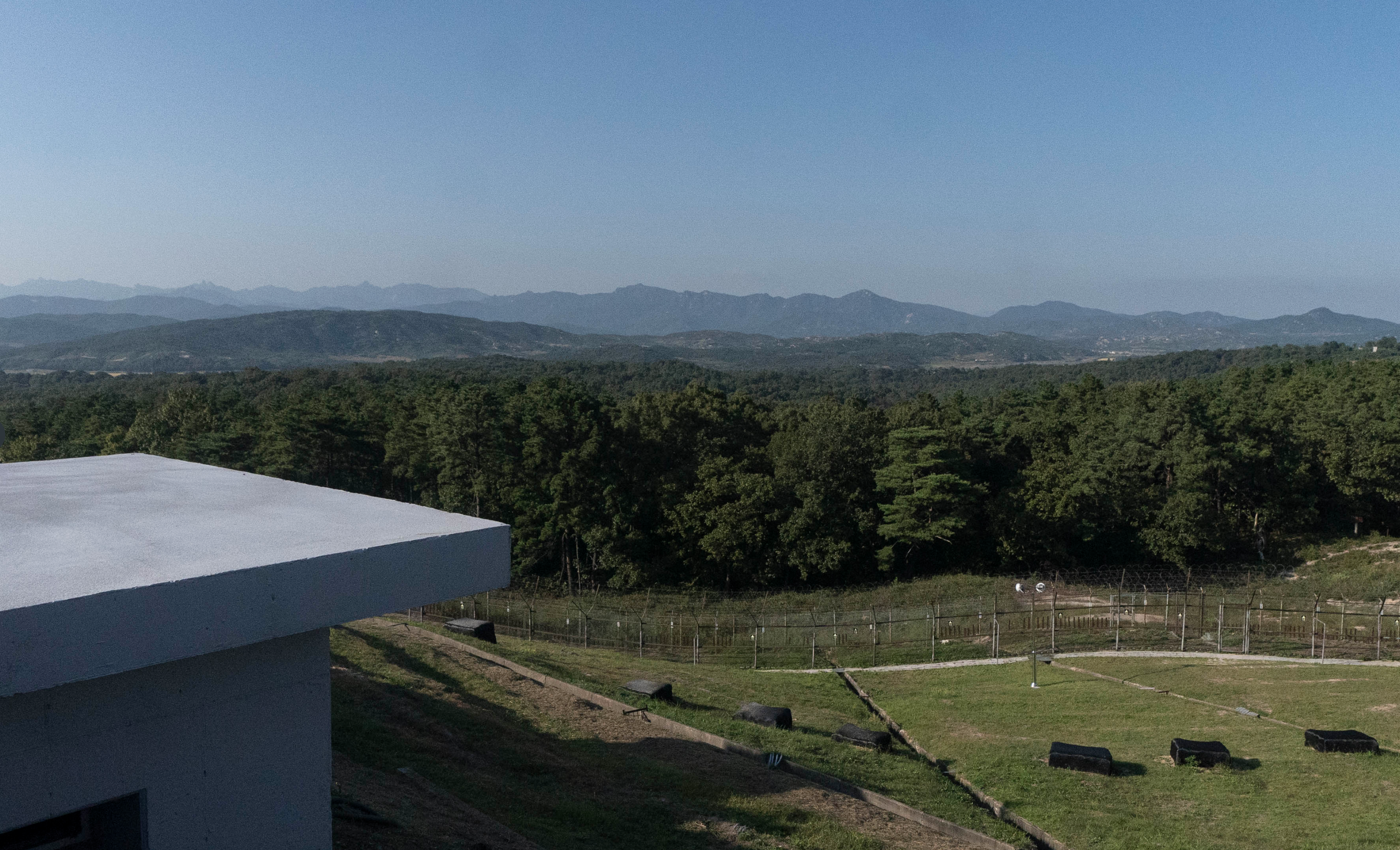
In the midst of increasing tensions in and around the Korean Peninsula, Christine Ahn, the executive director of Women Cross DMZ, speaks about the pressing need for a peace process to end the Korea stalemate and move towards a formal agreement to bring a final end to the Korean War. Her message is worth hearing, especially today with missiles on both sides flying through the skies.
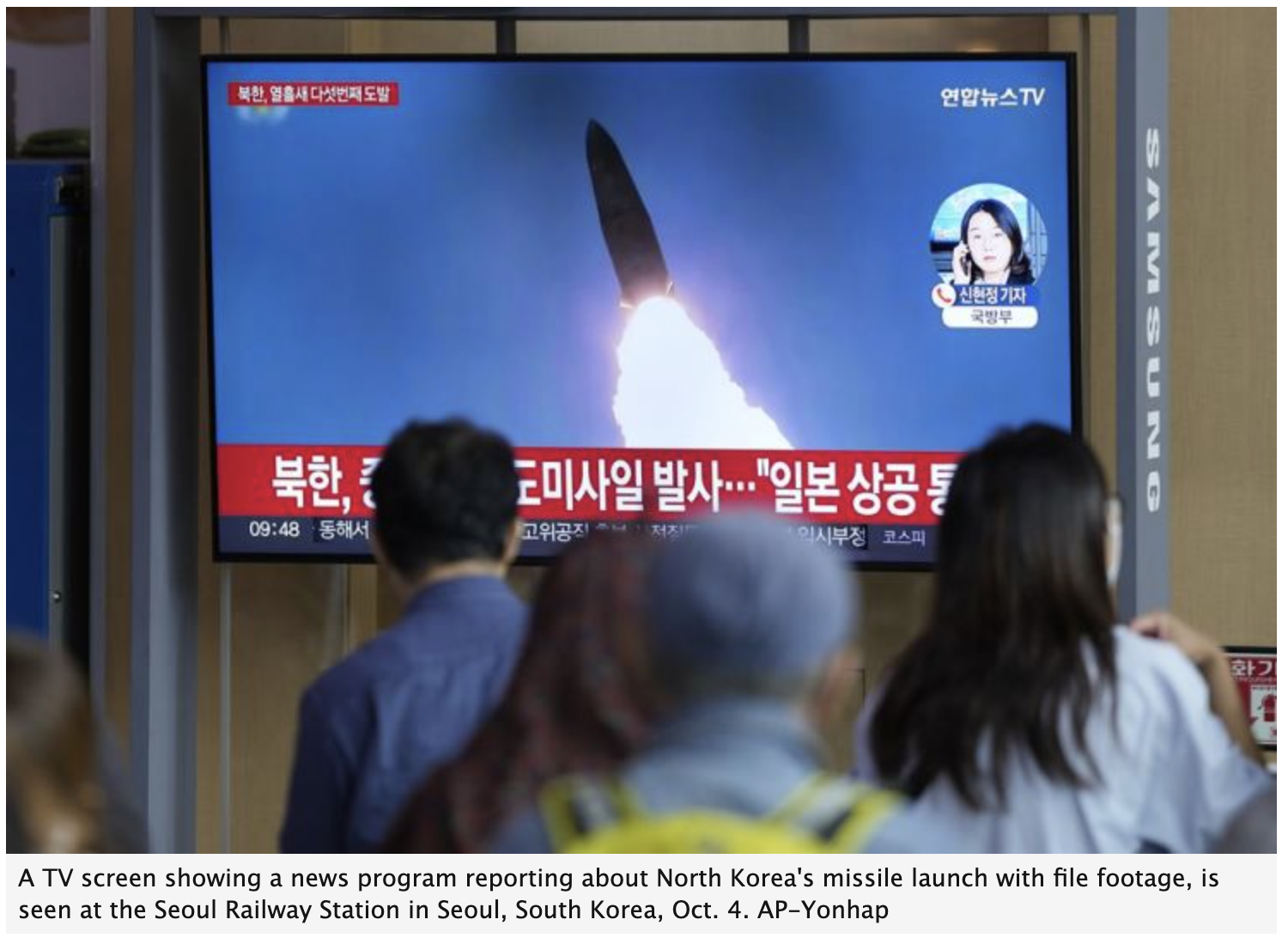
Another missile launch from North Korea, another American aircraft carrier in nearby seas, and the cycle of military confrontation on the peninsula continues. Meanwhile, the latest rocket can reach “not only Japan but also Guam,” home to a US strategic bomber base. All in all, a dangerous situation.
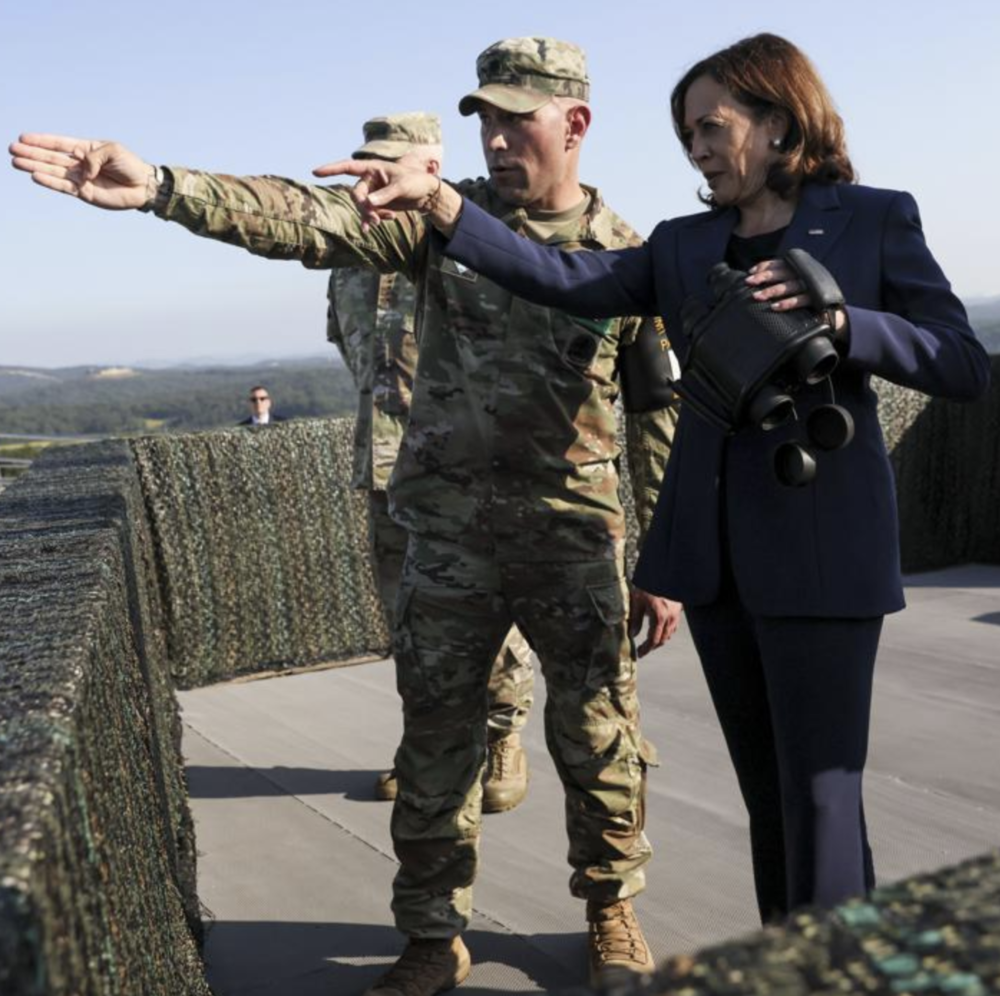
Total Disaster. She couldn’t even remember that the US alliance was with SOUTH Korea, not the “Republic of North Korea,” which doesn’t exist. But she got to have her John Foster Dulles moment at the 38th parallel - 72 years laters. Expect this image to be shown hundreds of times if she ever runs for president again.
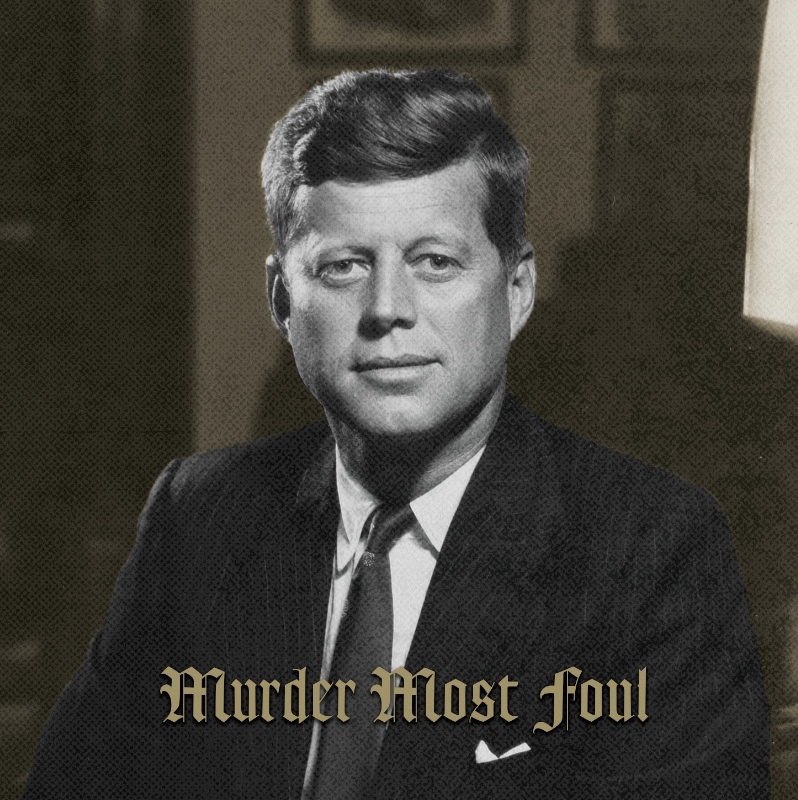
I wrote this story at the peak of the coronavirus outbreak at a time of maximum lockdown and sorrow, from coast to coast and throughout the world. It was a scary time, when life was suddenly suspended, human relationships were imperiled, and the future was dark and uncertain. Then, out of the weirdness and the grief, came Bob Dylan with a new song about the 1963 assassination of President Kennedy and how it turned our world upside down. It was also a magnificent tribute to the musicians who brought us through those Cold War years and the importance of culture to our national psyche. It’s one of Dylan’s finest songs.
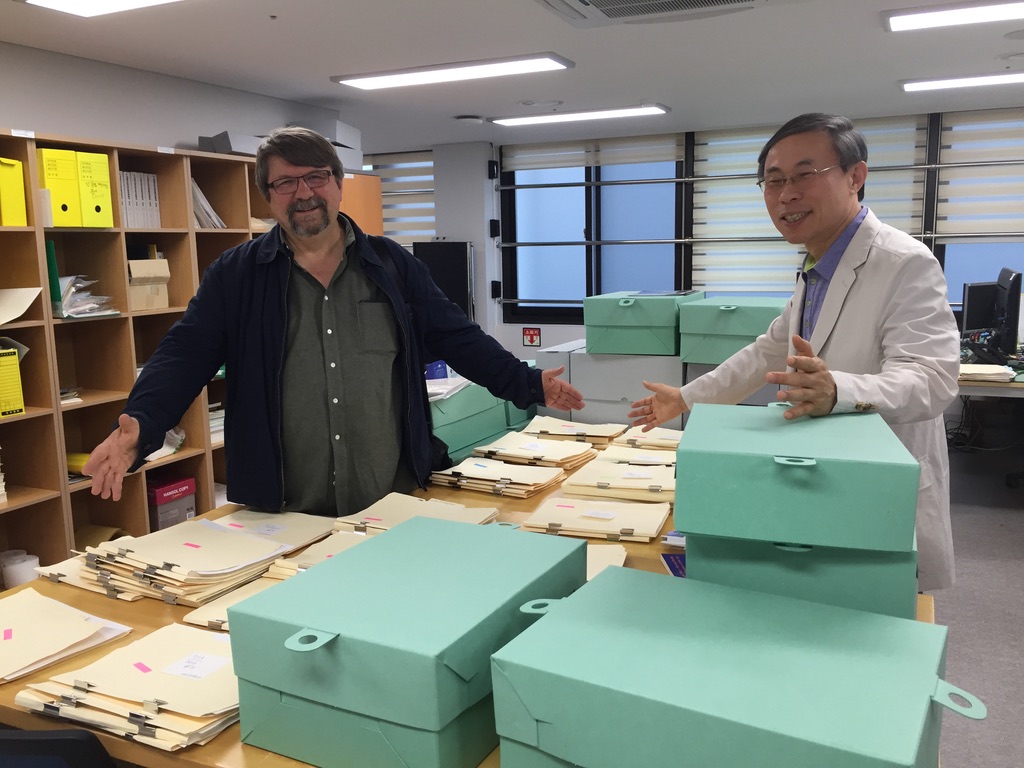
This was my initial post for the online database of the 4,000 declassified US government documents obtained under FOIA on the US role in the Gwangju Uprising of 1980. The list includes many of the key documents first reported in my initial 1996 stories on the US role in South Korea in 1979 and 1980. These were obtained between 1996 and 2006, when a few of my original documents were fully declassified in 2006.
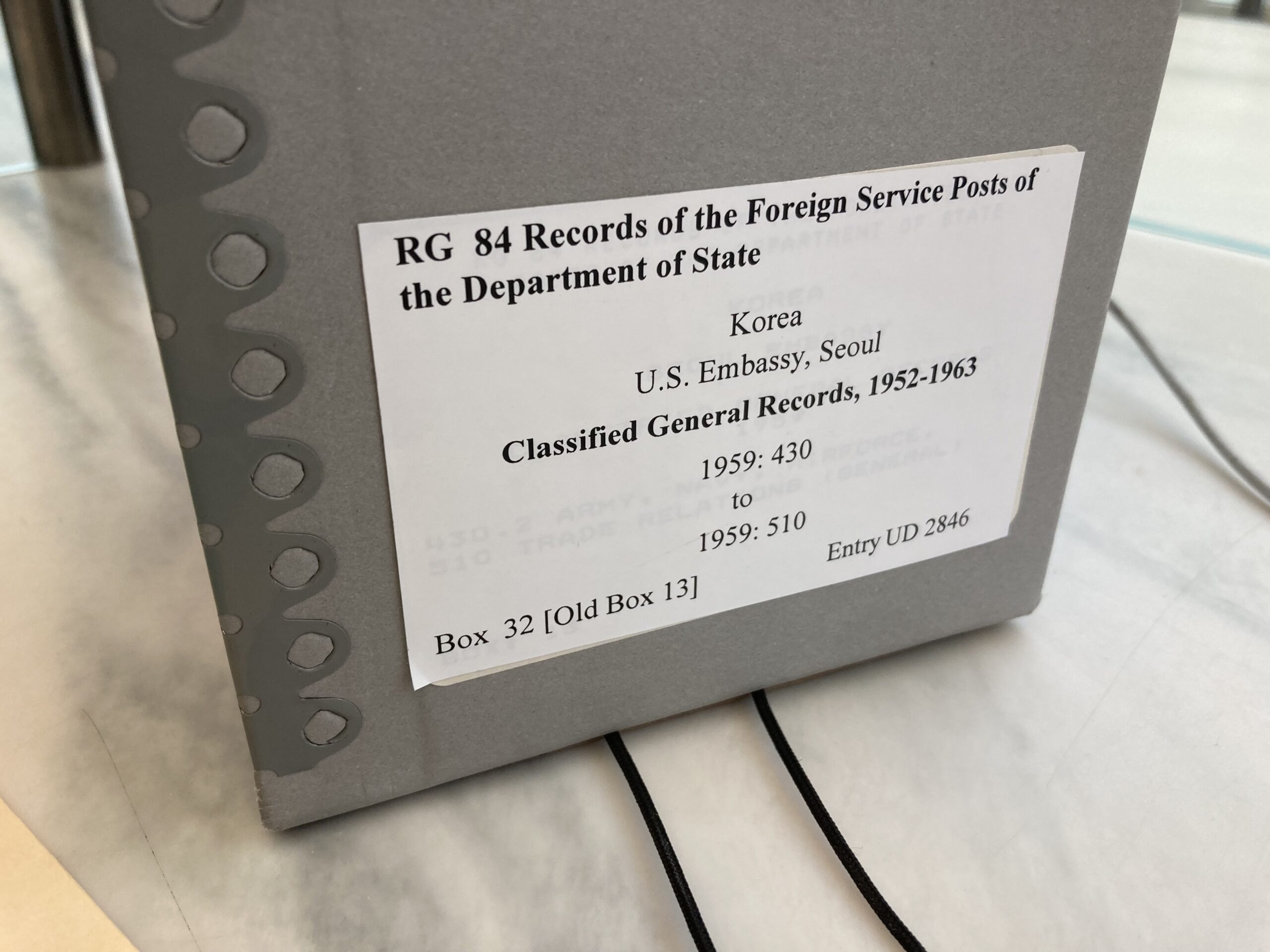
A 1947 comparison by the U.S. Embassy in Seoul of the costs of American vs South Korean troops. Basically, a ratio of $200 to $1. Cheap labor indeed.
The assassination of Park Chung Hee on the night of October 26, 1979, came as a deep shock to Washington and U.S. diplomats and intelligence officers in Seoul. For years, they’d been 10/28/1979 – Ambassador Gleysteen’s memo, “Initial reflections on…

While the Biden administration continues to promote its tired mix of sanctions and incentives to force North Korea to disarm, a coalition of women’s peace groups is calling on the US government to try what no American leader has done…
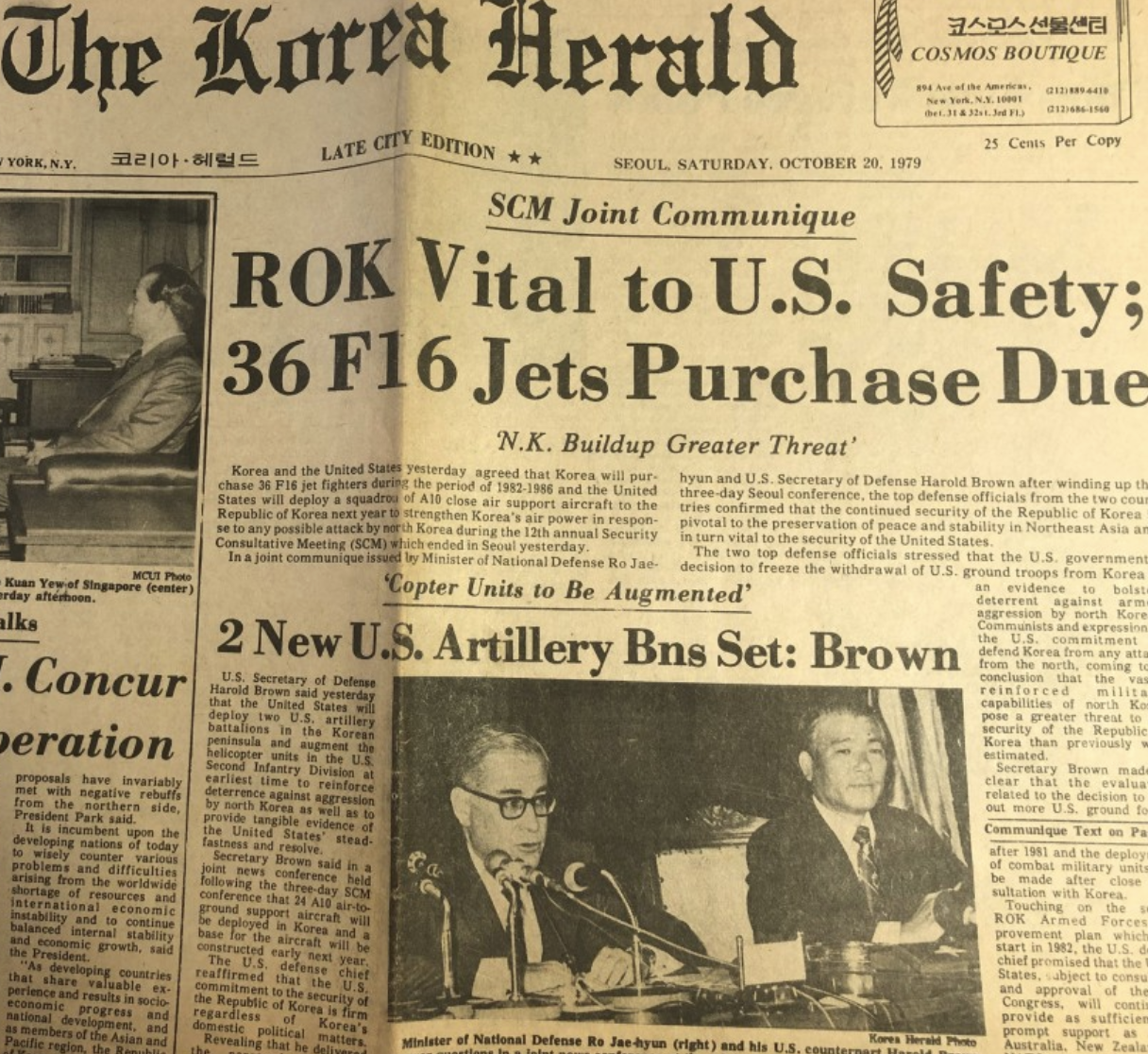
BOX 2, FILE 7 (1979-1980) Ambassador Gleysteen’s discussions with Chun Doo Hwan; Kim Dae Jung’s role in politics; the pace of democratization. These documents written by US Ambassador William Gleysteen are primarily from 1979 and the summer and fall of…
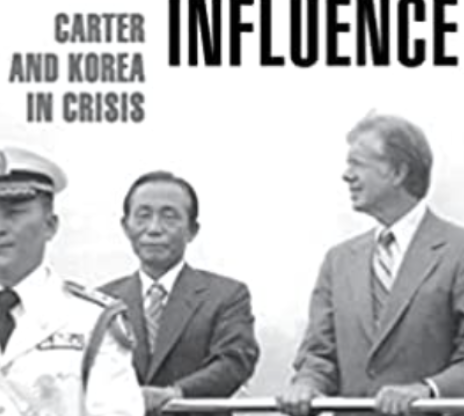
BOX 2, FILE 6 (1979-1980) This file contains key documents written by US ambassador William Gleysteen to the State Department in Washington during the critical months from November 1979 to May 1980. They are significant because Gleysteen was the head…
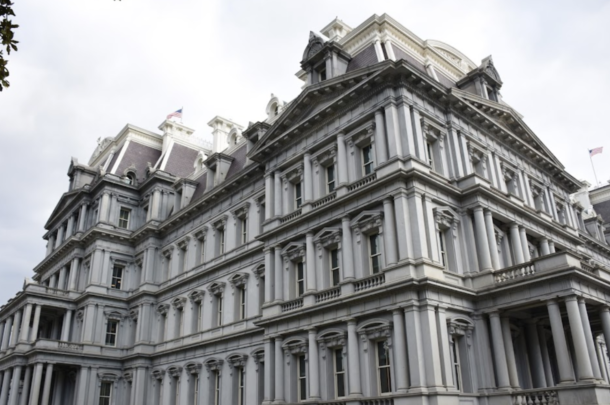
BOX 2, FILE 4 (May 22, 1980) This document from the National Security Council provided the full notes to the May 22, 1980, meeting where the Carter administration agreed to deploy military force to end the Gwangju Uprising. The participants…
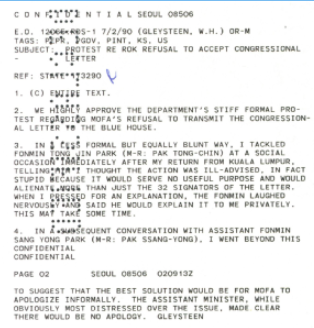
BOX 2, FILE 3 (1980) July 1980 – These documents describe back-and-forth communication between the US Embassy in Seoul and the South Korean Ministry of Foreign Affairs about MOFA’s refusal to transmit to the Blue House a letter signed by…
These documents from the Cherokee Files help us understand the interventionary role played by the United States in the events in South Korea, from the Park assassination in October 1979 through the reluctant US acceptance of General Chun Doo Hwan as South Korea’s leader in the fall of 1980.
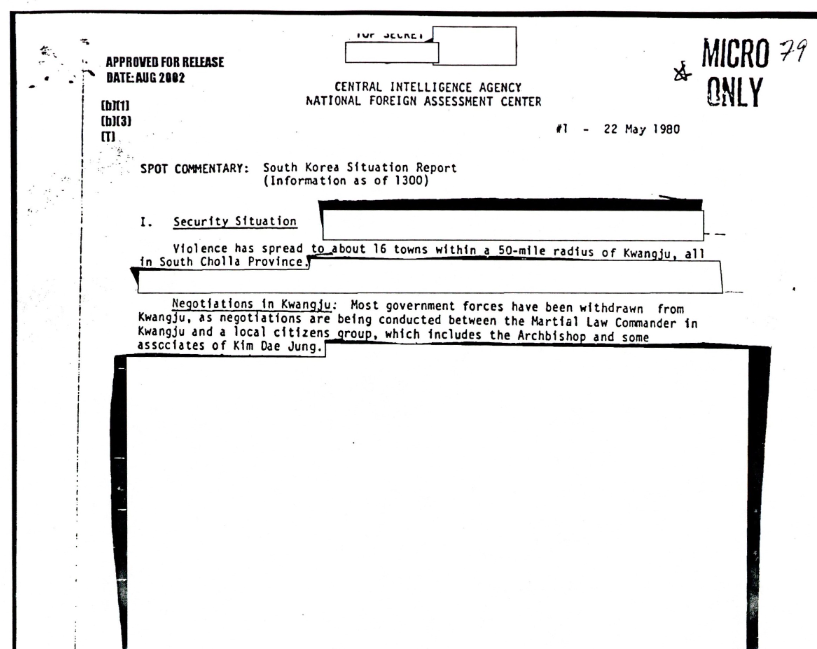
May 21 and May 22, 1980, were two of the most critical days of the Gwangju Uprising. On May 21, Chun Doo Hwan’s martial law forces opened fire on hundreds of citizens surrounding the old Provincial Capital building; 60 people…
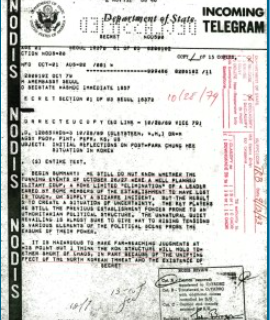
This file contains important State Department documents, mostly written Ambassador Gleysteen, about the events leading up to and preceding the October 26, 1979, assassination of Park Chung Hee, as well as the events surrounding coup within the military on December 12, 1979. They are significant because they show, in great detail, how the Carter administration and Ambassador Gleysteen carried out a campaign throughout these crucial months to preserve the basic structure of the South Korean government (which was favorable to American interests), persuade the military to loosen their grip on Korean society, and pressure the democratic opposition to moderate their demands for a quick return to full democracy.
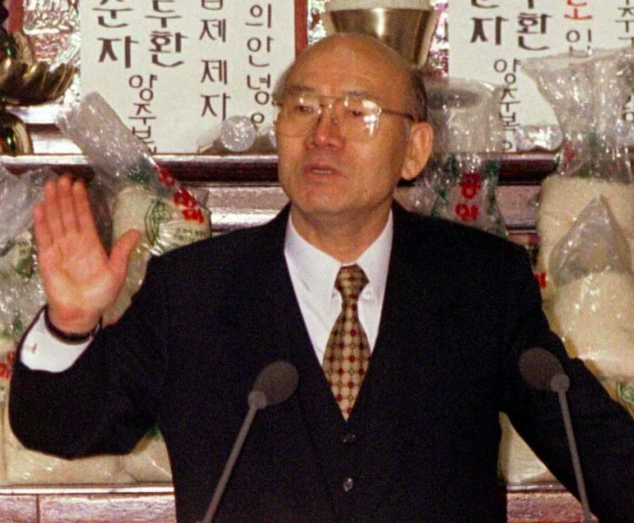
These documents are primarily US embassy reports on the military trials of over 175 people arrested by the martial law authorities after the Gwangju Uprising. “Most of the defendants are apparently clergymen, professors, and students.” (Oct. 24 cable). The documents also include reports of a Korean military incursion into the USIS Information Office in the Kwangju US Cultural Center, and the US government complaints about that. The troops apparently entered the USIS Library after a student from Chonnam University was arrested with materials about the Park assassination he obtained from the library.
This is an online database of the 4,000 declassified US government documents on the US role in the Gwangju Uprising of 1980. The original copies of the documents known in Korea as the “Cherokee File,” are permanently stored and available for…
This is the first posting of what will be an online database of the 3,500 declassified US government documents on the US role in the Gwangju Uprising of 1980. The original copies of the documents known in Korea as the “Cherokee…
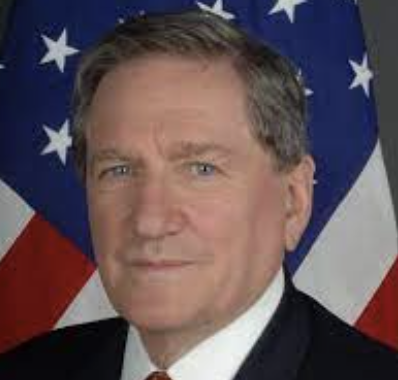
This article from The Nation about Gwangju from 1996 focuses on the role of the late Richard Holbrooke, who was President Carter’s top diplomat for East Asia in 1980 and played a critical role in US decision-making at the time.…
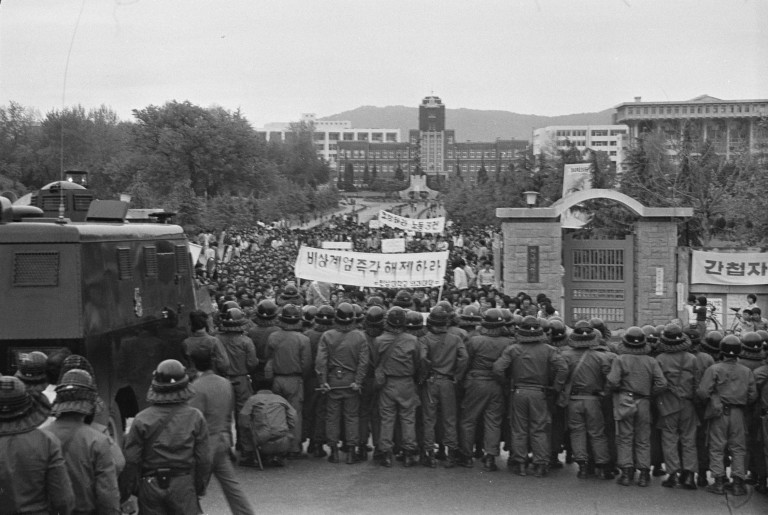
May 18 marks the 40th anniversary of the Gwangju Massacre and Uprising, which shook the foundations of South Korea in 1980 and marked the beginning of the country’s long march towards democracy. I’ve written extensively about Gwangju and the unfortunate…

















